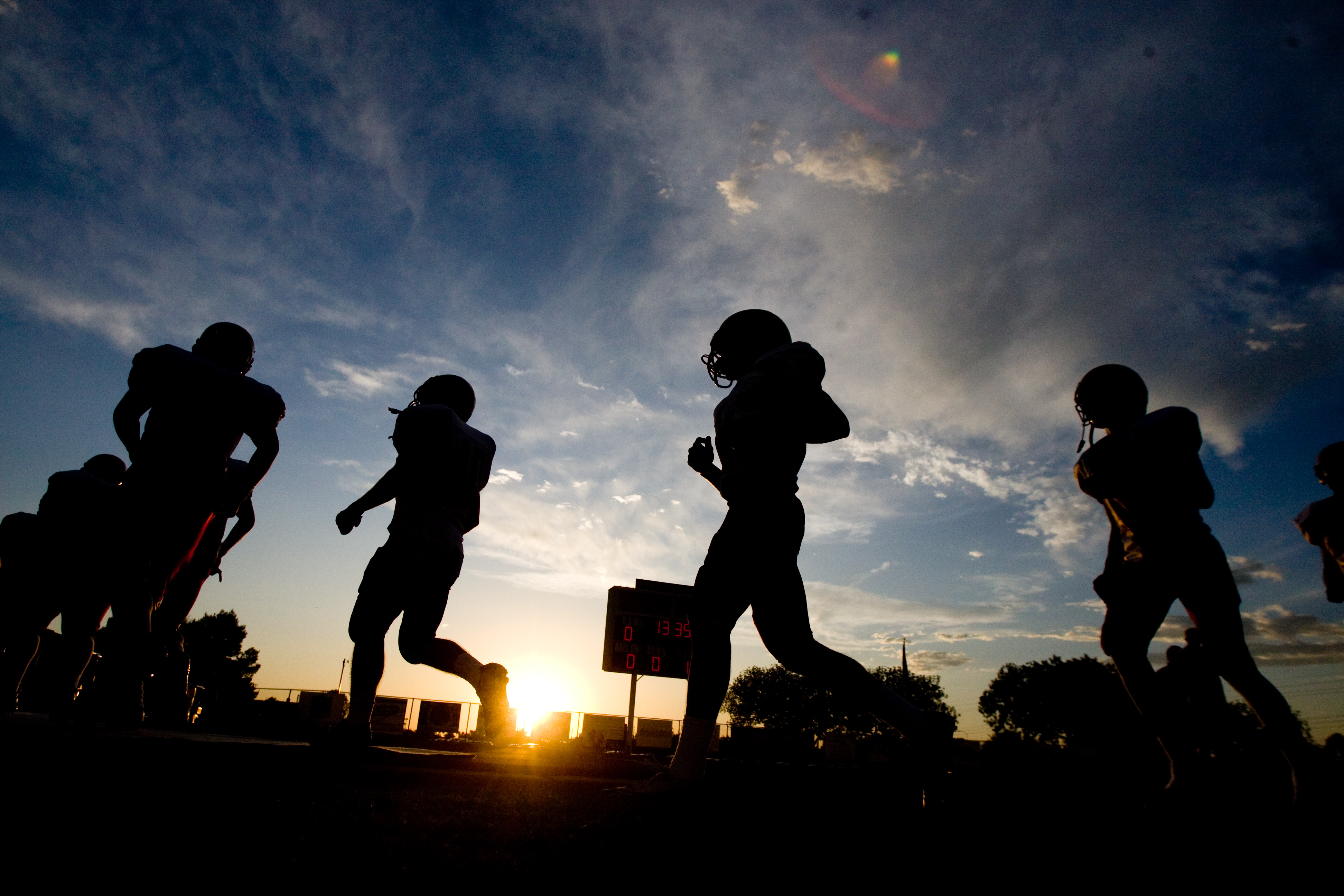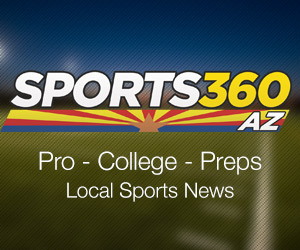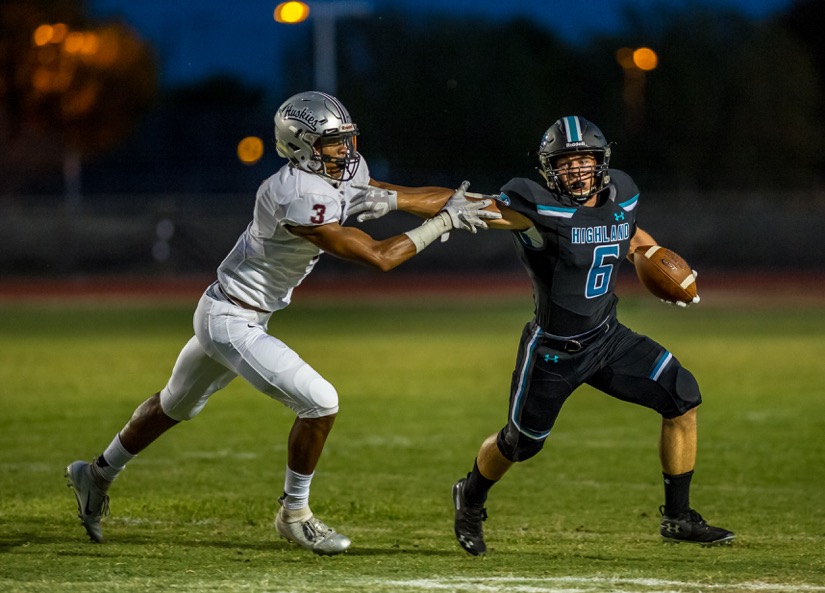By Ralph Amsden
When I initially set out to write about sports for a living, I had to ask myself a few questions. Chiefly among those questions was “who am I writing for?” I had grown up religiously consuming the high school sports content that appeared in The Arizona Republic and the East Valley Tribune, but I knew that content wasn’t meant for me. That content, in my mind, was meant to be consumed by whoever could afford to shop at the hardware store or athletic apparel outlet that purchased the ads in the newspaper. I decided that instead of making content for parents with purchasing power, I was going to create content that for the athletes themselves. It felt like a noble goal at the time, but as I would soon learn, separating the two audiences was both naive, and impossible.
Through patience, grace and perseverance on all sides, my relationship with my immediate family is incredible, but it wasn’t always ideal. I, like many of my friends, grew up playing sports, not because it was encouraged in my home, but because it was a way to avoid having to go home altogether. There were no problems on any field, court, track or mat that couldn’t be solved through more focus, more drops of sweat, and more effort. I might not have been the best, but I could use the day to get better. In at least one area of my life, I was in control. When I started writing about high school sports, I think that I was writing for the kids that were using the sports as a means of compensation, while ignoring that athletic contests, at their best, are less about individual contests of talent and will, and more an extension and measure of the support the contestants get from their coaches, families, communities, and each other.
In the beginning, I shrugged off each attempt by every sports dad that sought to give me feedback, praise, redirection, or lobby for media consideration for their young athlete. I was appreciative of any attention my efforts to highlight the accomplishments of young student-athletes received, but was resolved to do things my way. My media platform was about the athletes, not their parents. Eventually, however, I had no choice but to recognize that the two things were inseparably bound- and it was the prep athletes themselves who showed me that.
Any time in the course of an interview that I asked an athlete what helped them to accomplish whatever they had just achieved, they talked about their support system: Chiefly, their father, stepfather or whichever coach, family member, friend, or community member was stepping into the role of performing the fatherly duties that we’re designed as people to need. The athletes made me realize just how important their fathers were in accurately telling the stories about who they are. They can’t be separated, because their stories, for better or worse, are one and the same.
I still have dads reaching out daily, lobbying for media attention. I get it. We’re all lobbyists for our own self-interest. That’s not necessarily a bad thing. As my four children grow, I’m starting to realize more and more that I’d do whatever it takes, within reason, to put them in the best position possible to reach out and grab every opportunity afforded to them. My mindset has shifted. Where I used to groan at emails, texts, direct messages, or getting cornered at sporting events by proud dads wanting to extol the efforts and virtues of their progeny, I now welcome and encourage it. I’ve gained a respect and admiration for the fathers and father figures that can seize the authority their role affords them and use it to not only sheppard their sons and daughters through the peaks and valleys, but also proudly and unabashedly serve as media surrogates.
At the end of the day, the most impactful thing to somebody like me, who is raising up several young kids of my own, isn’t what a father has to say about their young athlete, but instead, what a young athlete has to say about the person filling the role of their father, as well as what fathers have to say about themselves. The true testimony of who we are as parents or children comes from the people we are on the way to and from the field rather than what is accomplished on it. With that being said, I asked for some members of the athletic community to speak to the role of fathers and fatherhood in their lives, and this is what they had to say:
“The love between a father and his son can never be replaced. Our relationship is one of the most important things in my life. The essence of humility, hard work and service are all derived out of our relationship. He is the biggest influence in my life and I always want to make him proud. He is the reason I am where I am today. He is my best friend.” -Jacob Conover (Chandler)
“My relationship with my father means the world to me. He has been the greatest example of what a father truly represents. From influencing me as an athlete to be the best I can, he shows me every day with his character to be the hardest worker and be the best man I can be. I wouldn’t be the man I am today without my father. I’m so grateful and thankful for Chuck Howard.” – Jordan Howard (Perry/Central Arkansas)
“My relationship with my father is literally the most important thing. My dad is everything. He shows me how a man is supposed to take care of his family. He shows me how a man is supposed to support their kids, and he shows me how to conduct myself as a man in life. He keeps me humble and grounded through every offer I get and all the rankings stuff, and also uplifts me and makes sure I’m good after every loss. Fathers are everything.” – David Heckard (Faith Lutheran, Las Vegas)
“Since I was little my dad always told me that sports would help make me into a great man. I am now just starting to understand what he’s talking about. Lots of kids my age are making some bad choices, but my dad and my coaches have always been the ones to keep me straight.” – Ridge Docekal (Saguaro)
“My dad pushed me to be the best I can be through my entire high school career, and lead me by his example. He drove me from Gilbert to North Canyon to train from 8th grade until my last day before leaving for college. He committed to supporting me. He never went to college, and worked three jobs, all while telling me I was going to college one way or another. I wasn’t going to leave him with student loan debt. I busted my hump for five year to earn my scholarship. I’m glad to see when I look up in the stands I see the biggest smile from a man who doesn’t smile much.” -Adam Higuera (Perry/Tulsa)
“In my high school football career, I was blessed to have an amazing father who was also my coach. Some father/son relationships on football teams might not be supported, but I can’t tell you how supportive the community was for my dad. He wasn’t coaching for the money, or satisfaction of being able to control kids, he was a volunteer coach doing the absolute most for the kids and the community. He loved the feel of the game, and loved giving me a hug before and telling me to go ball out and have fun. I’m extremely blessed to have a father like mine. I wouldn’t trade him for anyone or anything.” -Blake Spear (Verrado)
“I feel the most important role a father or father figure can play is being the athlete’s support system. Show the kid you’re as invested in their dream as they are. From late night homework sessions, to talking to school counselors, teachers, or coaches about the kid’s progress, to making a genuine attempt to make it to every possible event. Participate in getting them to training, practices, games, tournaments, banquets and fundraisers. Keep an open line of communication that goes both ways- the kid should want to confide in you about everything without fear of backlash.” – Coach Jason Allen
“My dad has been someone I have always looked up to, and someone who I want to be like when I’m older. He’s always been my best friend, and while he’s my coach on the field, he always reminds me to take care of my business in school. He’s given me and my teammates from Tucson Turf many opportunities to travel across the nation to compete against the best competition, because he likes seeing us push ourselves to be great and get better. He reminds us that football is just a game, but it’s also a metaphor for life. He teaches us that if you put in work with great effort and attitude, you can achieve anything you want.” -Trenton Bourget (Marana/Tucson Turf)
“As a coach and a father I used to be a pretty crazy football dad. I genuinely feel that at one point I was living vicariously through my son, and held athletic performance at such a high regard that it almost defined our relationship. Once, at a tournament, I was upset that my son wasn’t playing as much as I thought he should, and I received a gut punch from one of the coaches, who told me that I wasn’t doing my kid any favors by not letting him earn things on his own, and that could create an attitude of entitlement and an inability to take responsibility and learn from failure. At the same time, my godson, who was an amazing QB, talked to me after he was done with football and told me he never felt like he got to just be a kid, and told me he didn’t want that for my son and I. It was the perfect wake up call, and I changed completely. I let go and told him to go out and have fun, and that I would love him all he same whether he went out and became a football star, or decided to stop playing altogether. Right now I’m in Atlanta for the Pylon 7v7 National Championship, and watched my son line up against the number one cornerback in the nation for a few plays, but if he walked off the field today and said he’d rather make Youtube videos than play football, I would love him all the same, because football doesn’t define our relationship- being my son does. Hopefully some dads can learn from my experience.” -Andy Braun



